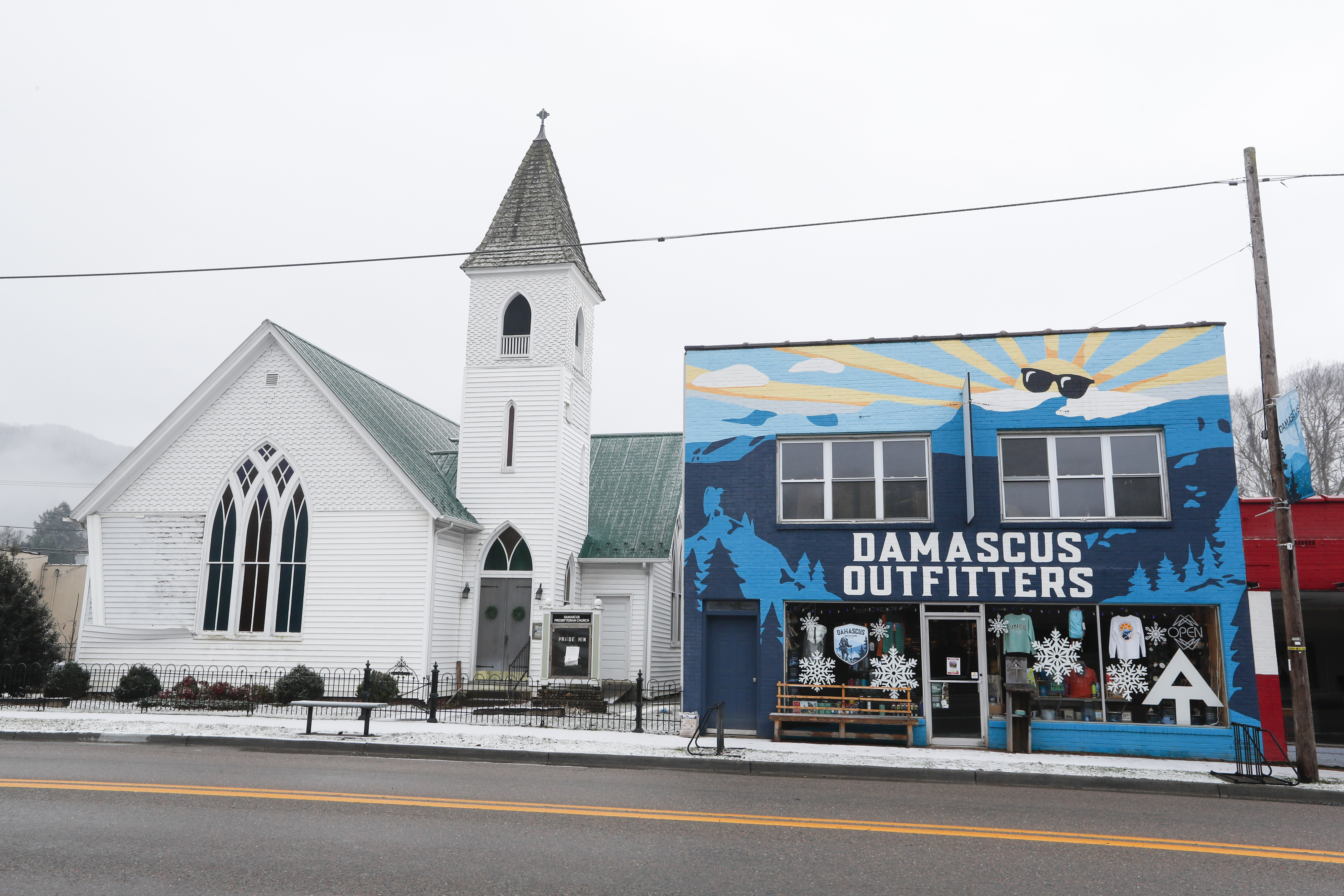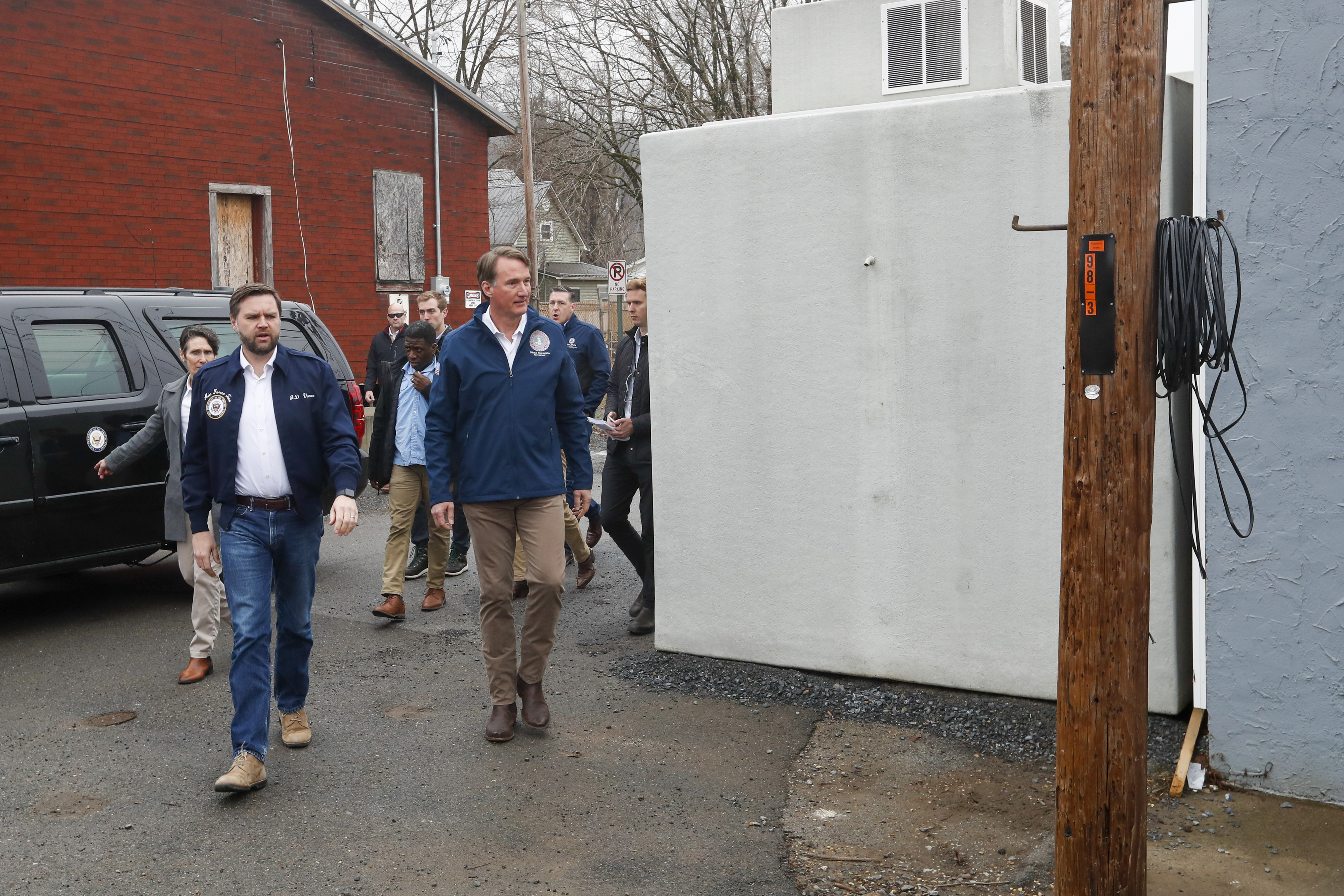Vice President JD Vance returned to Damascus on Monday afternoon and said the town’s progress in recovering from last September’s Hurricane Helene damage is being hindered by slow federal bureaucracy.
After meeting with local, regional and state leaders, Vance told news media he and the Trump administration will work on cutting through barriers to provide federal assistance.
Vance, who visited Damascus in early October as a candidate, said it was great to be back and that he loves the Appalachian region.
The community is doing a great job of rebuilding, he said, adding that after just seven days as vice president, he was delighted to make Damascus his first official visit.
Vance flew into Tri-Cities Airport in Blountville, Tenn., and traveled by motorcade the roughly 45 miles to Damascus along U.S. 58 from Abingdon. The highway was dotted with law enforcement vehicles on standby, along with a large digital sign advising motorists that the road would be closed at some point between 1-4 p.m.
After arriving in the Washington County town of fewer than 800 residents, Vance took part in a roundtable meeting with Gov. Glenn Youngkin; state Sen. Todd Pillion and Del. Israel O’Quinn, both Republicans from Washington County; Steve Smith, chief executive of the Food City supermarket chain and a contributor to relief operations; and several county and town representatives. The press was excluded from the discussion.
About an hour later, Vance and Youngkin spoke to press in front of the Damascus Diner, which is being rehabilitated after suffering flood damage. 
Vance said he heard a lot about volunteer efforts and wants to make sure the government does right by those doing the work.
Roundtable participants told him federal bureaucrats are proving to be barriers to recovery, he said.
Youngkin said the spot where he and Vance stood had been covered in deep mud and water immediately after the storm. In the following months, he said, the federal government ground to a halt with regard to getting resources to Virginia communities that need them.
Youngkin said the processes must be streamlined to get government out of the way.
Vance said about $4 billion in federal disaster aid had been earmarked for Virginia, but only $47 million had been made available so far. The administration needs to figure out what is causing delays, he added. 
A lot of focus has been placed on storm damage in western North Carolina, but there was a lot of devastation in Southwest Virginia and northeast Tennessee, Vance said.
Damascus, widely considered the friendliest town along the Appalachian Trail, has prospered for years by catering to hikers and outdoor tourism enthusiasts.

Vance noted that the Virginia Creeper Trail, extending about 14 miles from Abingdon to Damascus, is a major source of economic development for Damascus, but progress on rebuilding damaged trail sections has been too slow.
And for those with home damage, he said, the Federal Emergency Management Agency provides up to $42,000, but he was told the average local damage estimates are about $130,000.
Local and state government and local residents are working to recover, but the federal government is slowing progress down, Vance said. “Government can do a heck of a lot better.” 



